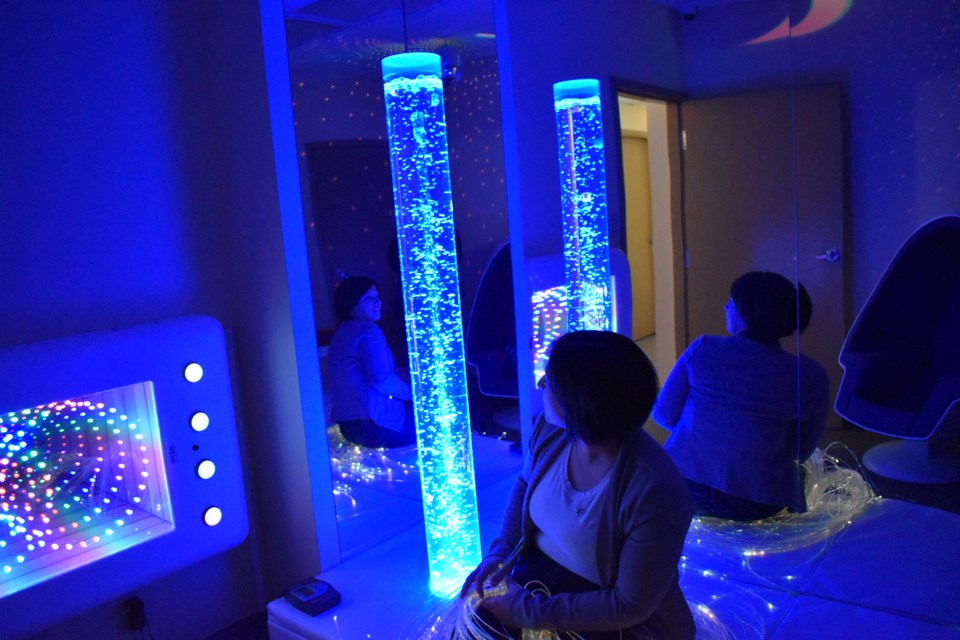Christmas can be a hectic time for many families, but it can be especially difficult for those in need a safe place to spend the holidays.
"Sarah" is spending her Christmas in the Hope Haven Women's Shelter's second-stage independent living program. Sarah isn't her real name, but the Lac La Biche women's shelter cllent wanted to have her story told, while protecting her identity and her family.
Sarah's story began about two years ago when she was laid off from her job in northern Alberta. Due to her busy work schedule, she was never home enough to realize the multiple problems that were going on under her roof. After months of first-hand interractions, she came to realize the affects of alcohol and drug abuse, financial abuse, and psychological abuse from her partner. It took some time, but she eventually found that they were situations that she could no longer be around.
Eventually, she got in touch with a community facilitator in the Conklin area who steered her in the right direction. Coming from a family of hard workers, Sarah found it difficult to ask for help initially. Still, she knew she needed it and agreed to go to Hope Haven, which was last January.
"I would always run away from all my problems. I didn't deal with anything. I would just work. When you're working so that you're exhausted all the time, you don't notice until you're not working, then everything hits you," she told the POST.
She entered the shelter as an emergency client. Staff extended her stay a few times, and eventually were able to help her find her an affordable place to stay outside of the shelter, but still in Lac La Biche. Initially, Sarah was excited for her new life to begin — and even allowed her son to move in as well. But as it is many times with the road to recovery, there are hurdles, and she quickly realized that her son was strugging with addictions. Ultimately his actions got her evicted from the property, leaving Sarah to turn back to Hope Haven for the second time. This time, there was an opportunity for her to stay under the supervision of the shelter.
"When I came back here at the beginning of June, I stayed until one of the apartments upstairs was opened up for me, so I'm in Stage 2 now, and they rent very cheap to me so that I can get back on my feet."
The shelter is split into two stages, the first being the emergency shelter where everything is provided for clients in terms of food, shelter and necessities; the second stage is independent living.
When clients move into independent living, they purchase their food and pay rent, while still being able to take advantage of resource programming if needed.
"Last Christmas, I was hiding in my bedroom because my son was basically horrible, and it's not something I've ever had to deal with before, and this year, it's so great," Sarah told the POST last week.
Hope in the community
Since its start in 1991, Hope Haven has occupied three facilities consisting of the emergency shelter, Lynne's House, the on-site second-stage housing complex, and Cassie's Place, the off-site independent living suites. Lynne's House is named for the late Lynne Lambert, a former Town of Lac La Biche councillor who spearheaded the creation of the local women's shelter. Cassie's Place is named for the former executive director Cassie Putnam, who retired from the shelter three years ago after more than 25 years.
According to current Hope Haven executive director Melissa Green, the holiday season does get busy for the emergency shelter. Currently, all facilities are full, causing staff to find alternative accommodations for some. This lack of spots within the facilities is not new. A 2019 report set out by Alberta Council of Women's Shelters (ACWS) states, that 23,247 women, children and seniors requesting admission from shelters across the province were turned away due to a lack of capacity in 2018/19. Those people ended up being referred to facilities away from their home communities.
Since january 2019, the Hope Haven Women's Shelter has had to find alternative accommodations for 55 women and 53 children due to its shortage in capacity. The scheduling for duration of stays within the shelter's operations can be as unpredictable as the times when emergency clients arrive.
Cassie's Place and Lynne's House allow residents to stay anywhere between one to three years, but if there is a safety risk in having women move out, then the shelter will enable clients to remain longer, says Green.
Both Green and Sarah agree that women's shelters like Hope Haven play a crucial role in any community, and although it has only been two years since the opening of the Cassie's Place expansion suites, the need for future growth of space and resources is alway an issue.
"We are always looking and open to opportunities that allow us to serve our community better," said Green, adding that the support of the community continues to help the organization carry out their difficult mandate.
This year will be Sarah's first Christmas at the shelter, and she could not be more thankful to everyone who has helped her get to this point.
"I don't know where I would be if it weren't for Hope Haven, and I'm not just talking about a place to live, I'm talking about myself — they help you any way that they can so that you're a better, well-rounded human and that you can succeed," says Sarah.
Green encourages the community to continue donating toys for children or other items that may help make this Christmas — and all times of the year — a little easier on those staying at the shelter.



